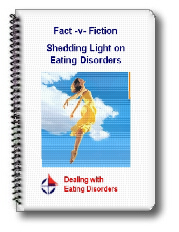|
Eating Disorders and Motherhood
Eating disorders can adversely affect the ability to become pregnant as well as the health of both the mother and child during and after pregnancy. To top it off, the chance of a high risk pregnancy was the same for women that were treated immediately before pregnancy and for women who had been successfully treated eight years earlier. Eating disorders stick with you, so prevention is the only acceptable form of treatment. Studies prove that low body weight, excessive exercise, and dieting can negatively impact a woman’s endocrine system. The endocrine system is responsible for hormones in the body and plays a key role in pregnancy. There is a positive correlation between normal body weight and a healthy pregnancy. Being close to normal body weight, eating a variety of foods, and the healthiness of a woman’s diet all affect whether or not the pregnancy and baby will be healthy. 
A pregnant woman with an eating disorder is putting an immense toll on her body and health. During pregnancy, the baby is drawing its nourishment from the mother, which could deplete the woman’s body of nourishment even more. This could lead to malnutrition, depression, stress, loss of control of emotional state, and also increases the risk of postpartum depression. The health of the baby is also in question if a woman has an eating disorder. Nutrients are essential during development, which means depriving the fetus of nourishment will slow, stunt, or deform growth. Mental retardation and low IQ rates are higher in babies who had a mother with an eating disorder. Children with affected mothers also have more common occurrence of low birth weight and are smaller and weaker then other children of their age. If you are a potential mother there are several important steps to take in order to insure the best chance of success with your new baby, and to secure both of your health. Honesty is the best policy. This is very important when it comes to your health care practitioner. Your doctor will probably schedule more appointments to see them then during a normal pregnancy. A nutritionist who specializes in eating disorders and a mental health professional should both be consulted before and during your pregnancy. This will ensure that you don’t suffer from malnutrition and that you are mentally successful.
The mental health professional can help you overcome any fears associated with weight gain and physical appearance changes during the pregnancy. Health professionals are your best chances of success during and after pregnancy, so for the safety of you and your baby, consult a doctor.
Vitamin & Nutrient Associations Even when we try to eat well, we're disadvantaged. The nutritional content of most food has been compromised over the years, not only by deficient soils and modern production, transportation, storage and processing methods, but also by the enormous amounts of chemical and artificial substances added to promote growth, storage life, taste and appearance.
It's for this reason that more and more medical authorities are advocating the use of vitamin and mineral supplements. However, finding them in the right combination can be both confusing and costly. The nutrition products I am going to recommend you make use of knowledge gained from the botanical world's 6,000 year history. They incorporated health building nutritional herbs with the best modern technology to help our bodies cleanse and detoxify so that the cells - the tiniest living units - can be as fully nourished as possible. This allows the cells to grow, repair and to perform their functions with the best possible efficiency so that we feel and look better and are more able to prevent and fight disease. Once the body begins to clear itself of toxins it can more efficiently absorb nutrition. More Resources available about eating disorders : Eating Away Pain: How Depression and Eating Disorders Go Hand in Hand These problems with food, weight, and body image can be extremely dangerous to a person’s health, both mentally and physically. Because those who suffer from eating disorders have poor body image, it is easy to see how eating disorders and depression work together.
Eating Disorders - Preventing Relapse: Just as Important as Treatment It is important to note that relapse prevention for eating disorders is different depending on each disorder. A good idea is to consult the professional that is aiding your recovery about the possibility and treatment involved with the potential relapse of an eating disorder.
Eating Disorders and the HolidaysEating disorders can be difficult and dangerous to deal with. This is especially true around the holidays. Many dieters feel the weight of the seasonal goodies on their shoulders and cheat so that they can taste the delicious treats of the holiday. Those with eating disorders may feel tempted to cheat as well, but this is not the case of stealing a cookie or piece of pie—cheating while you are recovering from an eating disorder can be deadly. Try to help your loved ones through this difficult time of year by offering support, encouragement, and understanding. First, remember to prepare for the holidays. Christmas shopping often sneaks up on us, and so holiday snacks can as well. The cycle usually begins around the end of October, with Halloween candy. Be ready for the extra treats by planning your meals and sugar intake. For those battling binge-eating disorders, such as bulimia, it is important to keep the candy out of the house. If you children go trick-or-treating and bring home tons of treats, let them keep their favorites and give the rest to friends and family members. Another option is to keep the supply at a grandparent’s house or in the freezer, so you or your loved one won’t be tempted to binge on candy. Thanksgiving and Christmas are holidays categorized by eating. Here, it is ok to eat a little extra, but it is a good idea to be on the buddy system—the person struggling with the eating disorder should be closely monitored to be sure purging is not occurring and that compulsive eating is not too out of hand. Anorexics should try to eat healthy in these situations, taking portions from all food groups in amounts that are comfortable. Part of the stress of the holidays is from friends and family in close proximity. They may not understand eating disorders and may make rude comments without realizing it. Be prepared for this and speak with them individually afterward about their behavior. Be prepared also for unfamiliar holiday meals. Your boss may invite you over for dinner in the Christmas spirit, for example. You may be asked to attend church functions that serve a meal. A significant other may wish to take you home for the holidays. Be ready to deal with these difficult situations by planning your intake of food before you attend a holiday event. Chose certain foods that you will and will not eat and try to stick with your plan. A dietician can help you with this goal. Your dietician will probably be your best friend during the holiday season, so be sure to speak with him or her regularly to be sure you stay on the road to recovery.
 to “Your Health Success” our monthly F’R’E’E’ Newsletter
Back to Top of Eating Disorders and Motherhood page
============================================================================ |


